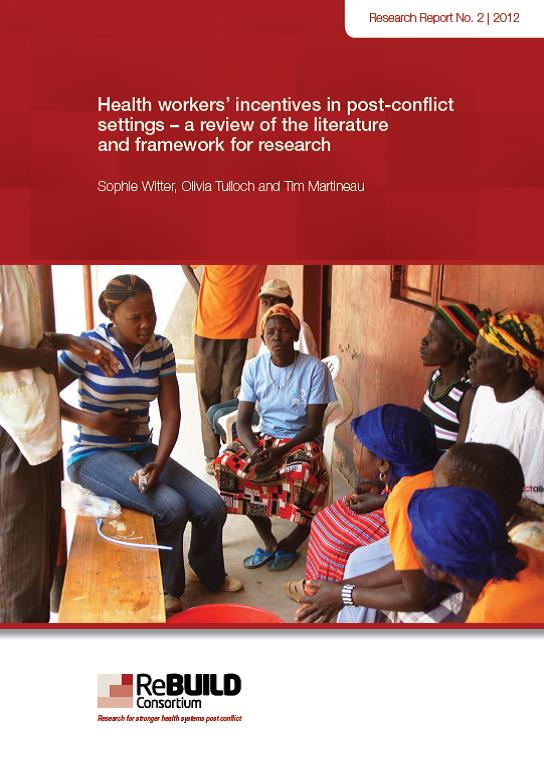Health workers’ incentives in post-conflict settings – a review of the literature and framework for research
 Witter, S., Tulloch, O. and Martineau, T. 2012.
Witter, S., Tulloch, O. and Martineau, T. 2012.
Health worker attraction, retention and performance are arguably the most critical factors affecting the performance of a health system. In post-conflict settings, where health systems and health worker livelihoods have been disrupted, the challenges facing the establishment of the right incentive environment are particularly important, and the contextual dynamics around them especially important to understand and incorporate sensitively into policy measures.
This paper aims to identify research gaps in relation to health worker incentives in post-conflict contexts. It was conducted as a background review for a ReBUILD research project on this topic. It starts with a discussion of key definitions. It then draws on a literature review to highlight what is known about health worker incentives in post-conflict areas. Based on this, a framework for future research is developed and discussed.
You can download the full report here.
The review highlights a rich though limited stock of studies on health worker incentives in post-conflict areas. Building on the literature and the conceptual framework, ReBUILD has developed research in selected post-conflict countries to understand how their incentive environments evolved in the shift away from conflict, what influenced the trajectory, what the reform objectives and mechanisms have been, and what have been their effects (intended and unintended). These aim to generate lessons on design, implementation, and suitability to context of different policy measures within and across countries.
To complement existing studies, there is a need to focus on the longer term reconstruction post-conflict and also on incorporating the experiences of health workers themselves – how they experienced the conflict, how they coped, and what legacy there is for their expectations and willingness to work post-conflict. Personal factors are understandably absent from the studies commissioned in urgent conditions in the immediate post-conflict phase, but merit more in-depth studies.